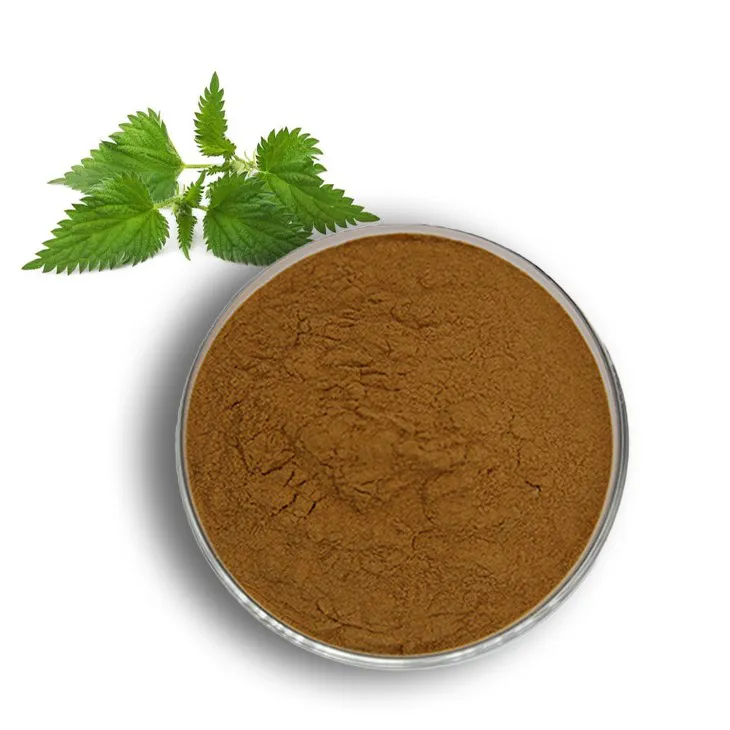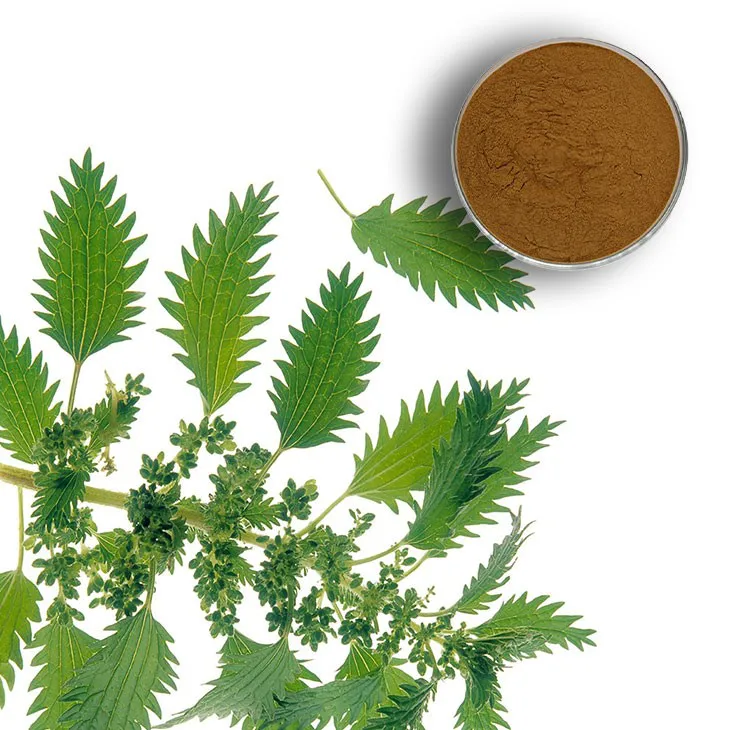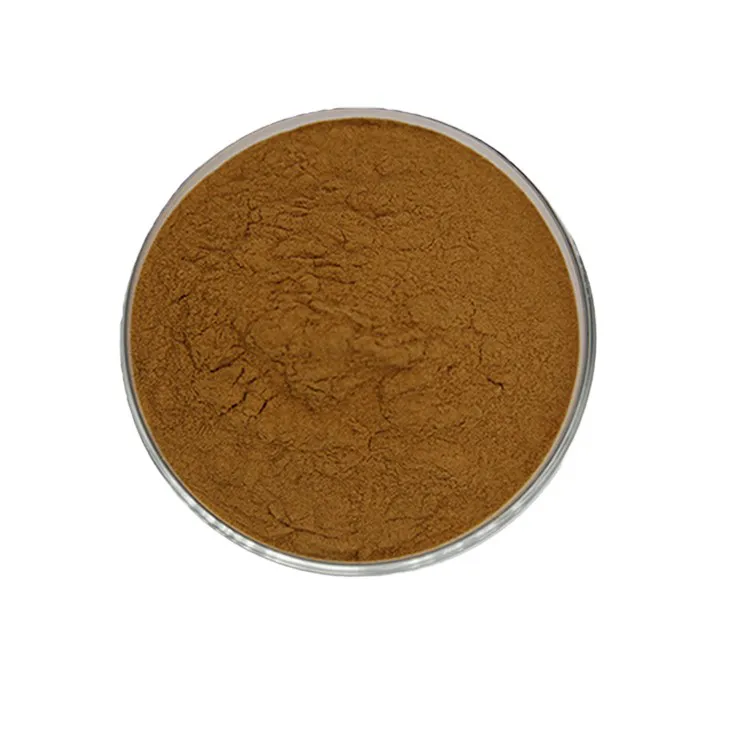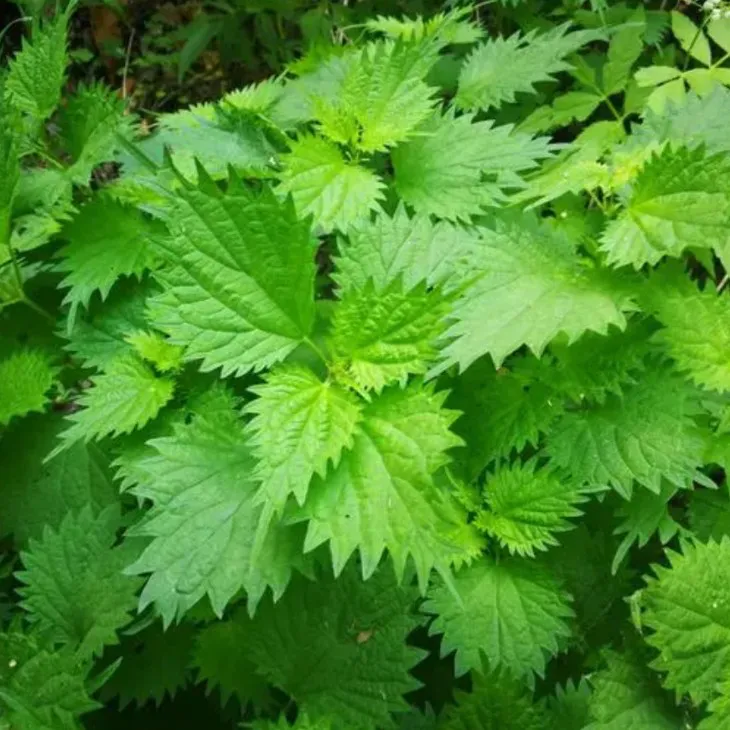- 0086-571-85302990
- sales@greenskybio.com
Nettle Root Extract: Uses, Advantages and Manufacturing Processes
2024-11-12

1. Introduction
Nettle Root Extract has become a remarkable natural product with a wide range of applications. It has drawn significant attention in recent years due to its various beneficial properties. The nettle plant, from which the root extract is obtained, is a common plant found in many regions, making it a potentially sustainable source of useful compounds.

2. Uses in Medicine
2.1 Treatment of Prostate Problems
In the field of medicine, Nettle Root Extract has shown great potential in treating prostate problems, especially benign prostatic hyperplasia (BPH). BPH is a common condition in aging men, characterized by an enlargement of the prostate gland. Nettle Root Extract may help in reducing the symptoms associated with BPH. It is believed to influence hormonal levels, particularly by interacting with the levels of testosterone and its metabolites. This interaction may play a role in modulating the growth of the prostate gland, thereby alleviating symptoms such as difficult urination, frequent urination, and weak urine flow.
2.2 Antioxidant Properties
Another important use of nettle root extract in medicine is its antioxidant properties. Oxidative stress is a condition in which the body's cells are exposed to an imbalance between free radicals and antioxidants. Free radicals are highly reactive molecules that can damage cells, proteins, and DNA. Nettle root extract, rich in various bioactive compounds, acts as an antioxidant to combat oxidative stress. By neutralizing free radicals, it can help protect the body's cells from damage and may potentially contribute to the prevention of various diseases, including chronic diseases such as heart disease, cancer, and neurodegenerative disorders.

3. Uses in the Cosmetic Industry
3.1 Anti - Inflammatory Benefits
In the cosmetic industry, nettle root extract is highly valued for its anti - inflammatory properties. Skin inflammation can be caused by various factors such as environmental pollutants, allergens, and certain skin conditions. Nettle root extract can soothe irritated skin by reducing inflammation. It can be used in various cosmetic products, including creams, lotions, and serums, to help calm redness, itching, and swelling of the skin.
3.2 Skin - Conditioning Benefits
Moreover, nettle root extract offers skin - conditioning benefits. It can improve overall skin health by providing essential nutrients and moisture to the skin. It helps in maintaining the skin's natural barrier function, which is crucial for protecting the skin from external aggressors. Regular use of products containing nettle root extract may result in smoother, softer, and more radiant skin.

4. Advantages of Nettle Root Extract
4.1 Natural Alternative to Synthetic Medications
One of the major advantages of nettle root extract is that it serves as a natural alternative to some synthetic medications. Synthetic medications often come with a range of side effects, which can sometimes be severe. In contrast, nettle root extract, being a natural product, may have fewer side effects. This makes it an attractive option for those who prefer natural remedies or for whom synthetic medications may not be well - tolerated.
4.2 Rich in Bioactive Compounds
Nettle root extract is rich in various bioactive compounds. These include flavonoids, sterols, and phenolic acids. Flavonoids are known for their antioxidant, anti - inflammatory, and anti - microbial properties. Sterols play a role in maintaining cell membrane integrity and may also have hormonal regulatory functions. Phenolic acids contribute to the antioxidant capacity of the extract. The presence of these bioactive compounds is what gives nettle root extract its multiple beneficial functions, such as antioxidant, anti - inflammatory, and hormonal regulatory activities.
4.3 Easy to Source
The nettle plant is widespread in many regions around the world. This makes it relatively easy to source the raw material for nettle root extract. The availability of the nettle plant in different geographical areas ensures a consistent supply of the extract, which is important for both commercial production and research purposes.

5. Manufacturing Processes of Nettle Root Extract
5.1 Harvesting
The manufacturing process of nettle root extract begins with the careful harvesting of the nettle roots. This is a crucial step as it determines the quality of the final product. The roots are typically harvested at the appropriate time of the year when the bioactive compounds are at their peak concentration. Harvesters need to be careful not to damage the roots during the process, as this could lead to a loss of valuable compounds.
5.2 Washing
After harvesting, the nettle roots are washed thoroughly. The purpose of this step is to remove dirt, debris, and other impurities from the roots. A clean water source is used for washing, and the roots may be rinsed multiple times to ensure complete cleanliness. Any remaining dirt or impurities could contaminate the final extract and affect its quality.
5.3 Drying
Once the roots are clean, they are dried. There are two main methods of drying: natural drying and low - temperature drying techniques. Natural drying involves leaving the roots in a well - ventilated area, exposed to air and sunlight. However, this method may take longer and is more dependent on environmental conditions. Low - temperature drying techniques, on the other hand, use specialized equipment to dry the roots at a controlled low temperature. This method is often preferred as it can preserve the bioactive compounds better, preventing their degradation due to excessive heat.
5.4 Grinding
After drying, the nettle roots are ground into a fine powder. This is done to increase the surface area of the roots, which facilitates the extraction process. The grinding process should be carried out carefully to ensure a consistent particle size, as this can also affect the extraction efficiency.
5.5 Extraction
The next step is the extraction of the active components from the ground nettle root powder. Extraction solvents such as ethanol or water are used. Ethanol is a commonly used solvent due to its ability to dissolve a wide range of bioactive compounds. Water is also a viable option, especially for those who prefer a more natural extraction process. The extraction process may be carried out using various techniques such as maceration, percolation, or Soxhlet extraction, depending on the scale of production and the desired purity of the extract.
5.6 Purification and Concentration
After extraction, the resulting extract is purified to remove any impurities that may have been co - extracted. This purification step can involve techniques such as filtration, centrifugation, or chromatography. Once purified, the extract is concentrated to obtain the final nettle root extract product. Concentration is usually achieved by removing the solvent, either through evaporation or other appropriate methods. The final product is then ready for packaging and distribution for use in various applications such as in medicine and the cosmetic industry.
6. Conclusion
In conclusion, nettle root extract is a valuable natural product with a wide range of uses and numerous advantages. Its applications in medicine and the cosmetic industry are based on its unique properties, including its ability to treat prostate problems, antioxidant properties, anti - inflammatory benefits, and skin - conditioning effects. The advantages of being a natural alternative, rich in bioactive compounds, and easy to source further enhance its appeal. The manufacturing process, although involving multiple steps, is designed to preserve the bioactive compounds and produce a high - quality extract. As research continues, it is likely that more uses and benefits of nettle root extract will be discovered, further solidifying its position as an important natural product in various industries.
FAQ:
What are the main uses of nettle root extract in medicine?
Nettle root extract has potential in treating prostate problems like benign prostatic hyperplasia in medicine. It can reduce symptoms by influencing hormonal levels. Also, it has antioxidant properties to combat oxidative stress in the body.
How does nettle root extract benefit the skin in the cosmetic industry?
In the cosmetic industry, nettle root extract is used for its anti - inflammatory and skin - conditioning benefits. It can soothe irritated skin and improve overall skin health.
What are the advantages of nettle root extract compared to synthetic medications?
Nettle root extract is a natural alternative to some synthetic medications and may have fewer side effects. It is rich in bioactive compounds such as flavonoids, sterols, and phenolic acids which contribute to its antioxidant, anti - inflammatory, and hormonal regulatory functions.
Why is nettle root easy to source for nettle root extract production?
The nettle plant is widespread in many regions, so it is relatively easy to source for nettle root extract production.
What are the steps in the manufacturing process of nettle root extract?
The manufacturing process of nettle root extract involves several steps. Firstly, the nettle roots are carefully harvested. Then, they are washed thoroughly to remove dirt and impurities. After that, the roots are dried either through natural drying or using low - temperature drying techniques to preserve the bioactive compounds. The dried roots are then ground into a fine powder. Next, extraction solvents such as ethanol or water are used to extract the active components. The resulting extract is then purified and concentrated to obtain the final nettle root extract product.
Related literature
- The Bioactive Compounds and Therapeutic Potential of Nettle (Urtica dioica) Root Extract"
- "Nettle Root Extract: A Natural Remedy for Prostate Health"
- "Manufacturing and Quality Control of Nettle Root Extract in Cosmetic Applications"
- ▶ Hesperidin
- ▶ citrus bioflavonoids
- ▶ plant extract
- ▶ lycopene
- ▶ Diosmin
- ▶ Grape seed extract
- ▶ Sea buckthorn Juice Powder
- ▶ Beetroot powder
- ▶ Hops Extract
- ▶ Artichoke Extract
- ▶ Reishi mushroom extract
- ▶ Astaxanthin
- ▶ Green Tea Extract
- ▶ Curcumin Extract
- ▶ Horse Chestnut Extract
- ▶ Other Problems
- ▶ Boswellia Serrata Extract
- ▶ Resveratrol Extract
- ▶ Marigold Extract
- ▶ Grape Leaf Extract
- ▶ blog3
-
High purity olive leaf extract
2024-11-12
-
Lavender oil extraction method
2024-11-12
-
100% organic virgin sea buckthorn fruit oil
2024-11-12
-
Lotus leaf extract powder factory in China
2024-11-12
-
China aged garlic extract supplier
2024-11-12
-
Deer antler extract powder manufacturer
2024-11-12
-
Saw palmetto extract vs whole herb
2024-11-12
-
Shikone Extract
2024-11-12
-
Polygonum Cuspidatum Extract
2024-11-12
-
Troxerutin
2024-11-12
-
Coconut Water Powder
2024-11-12
-
Propolis Extract Powder
2024-11-12
-
Mango flavored powder
2024-11-12
-
Acerola Juice Powder
2024-11-12
-
Gynostemma pentaphyllum extract
2024-11-12
-
Sophora Japonica Flower Extract
2024-11-12
-
Berberis aristata Extract
2024-11-12





















